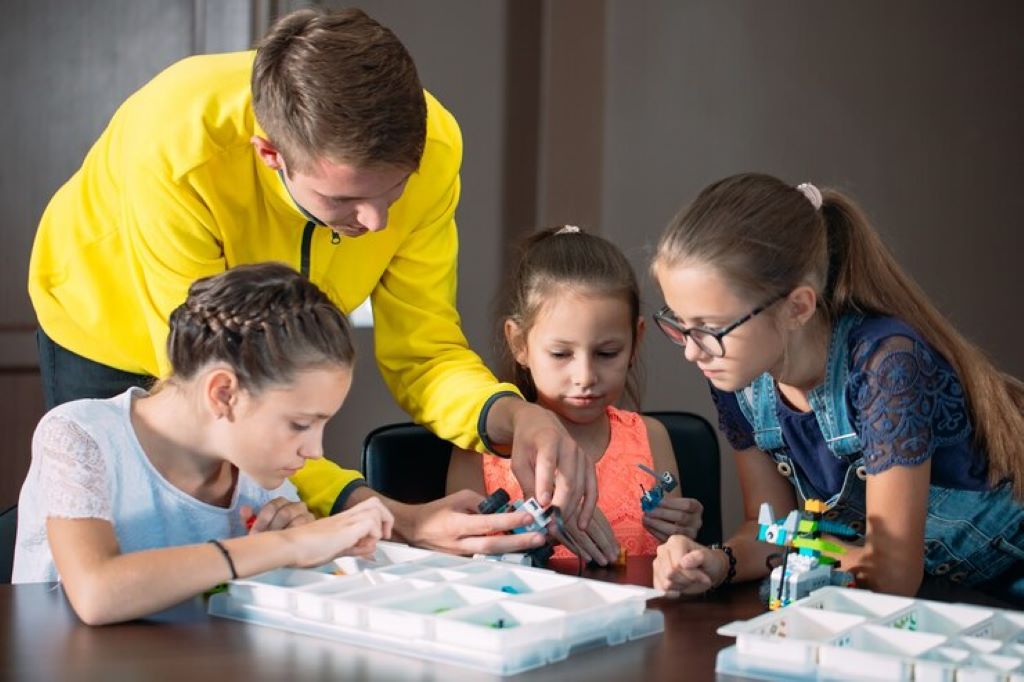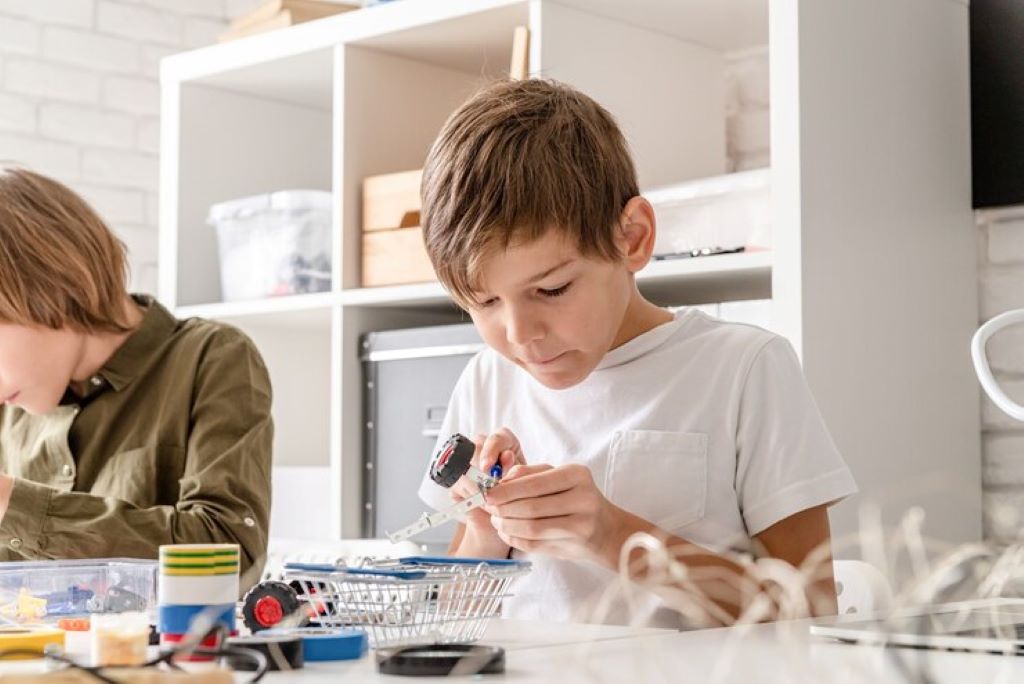In today’s fast-paced world, where technological advancements are shaping our daily lives, there’s an increasing emphasis on preparing children for careers in science, technology, engineering, and mathematics (STEM).
One effective way to foster interest and proficiency in these fields among children is through STEM summer camps.
These camps offer a unique blend of educational and recreational activities that not only enrich children’s academic knowledge but also contribute to their overall health and well-being.
What are STEM Summer Camps?
STEM summer camps are specialized programs designed to immerse children in hands-on learning experiences related to science, technology, engineering, and mathematics.
They often take place during school vacations and offer a range of activities such as experiments, coding workshops, robotics challenges, and field trips to science museums or research facilities.
These camps are typically led by qualified instructors who are passionate about STEM education and are adept at making learning fun and engaging for children.
Key Components of STEM Summer Camps
STEM summer camps are designed to cultivate children’s interests in science, technology, engineering, and math through engaging and hands-on activities.
Key components of these camps include immersive projects that promote critical thinking and problem-solving skills, exposure to real-world applications of STEM concepts, access to professionals in the field, and opportunities for collaboration with peers.
- Hands-on Activities: Camps feature a variety of interactive projects and experiments that allow children to explore STEM concepts in a practical way.
- Teamwork and Collaboration: Many activities are designed to promote teamwork and collaboration, helping children develop important social and communication skills.
- Problem-Solving Challenges: Camps often include problem-solving challenges that require critical thinking and creativity, encouraging children to think outside the box.
- Exposure to STEM Careers: Through guest speakers and field trips, campers gain insights into various STEM professions, inspiring them to pursue future careers in these fields.

Health Benefits of STEM Summer Camps
STEM summer camps offer numerous health benefits for kids as they engage in hands-on activities that promote physical and mental well-being.
By participating in activities such as coding, robotics, and science experiments, children improve their critical thinking skills, problem-solving abilities, and creativity.
1. Physical Activity
Many STEM activities involve hands-on construction, outdoor exploration, or physical challenges, providing campers with opportunities to stay active and engaged.
Whether it’s building a robot, conducting experiments outdoors, or participating in a science-themed obstacle course, children are encouraged to move their bodies and stay physically fit.
2. Mental Stimulation
Engaging in STEM activities stimulates children’s minds and keeps their brains active during the summer break.
From solving complex puzzles to programming robots, these activities challenge campers to think critically, analyze problems, and develop innovative solutions.
This mental stimulation can help prevent the “summer slide,” where children experience a decline in academic skills over the vacation period.
3. Emotional Well-being
STEM summer camps create a supportive and nurturing environment where children can explore their interests, build confidence, and develop a sense of accomplishment.
Successes in completing projects or overcoming challenges boost campers’ self-esteem and foster a positive attitude towards learning. Additionally, the friendships formed at camp provide social support and contribute to overall emotional well-being.

Educational Benefits of STEM Summer Camps
STEM summer camps provide hands-on experiences and interactive learning opportunities that can help children develop critical thinking, problem-solving skills, and a deeper understanding of science, technology, engineering, and math concepts.
By engaging in STEM activities during the summer, children can also cultivate a passion for these subjects and potentially spark an interest in pursuing a STEM-related career in the future.
1. Hands-on Learning
One of the most significant advantages of STEM summer camps is the emphasis on hands-on learning. Instead of passively absorbing information from textbooks or lectures, campers actively engage with STEM concepts through experimentation and exploration.
This hands-on approach not only makes learning more enjoyable but also enhances understanding and retention of complex topics.
2. Real-world Applications
STEM summer camps bridge the gap between theory and practice by introducing children to real-world applications of STEM concepts.
Whether they’re building a model bridge, programming a computer game, or conducting scientific experiments, campers gain valuable insights into how STEM principles are used in various industries and professions.
This practical exposure sparks curiosity and inspires children to pursue further studies and careers in STEM fields.
3. Critical Thinking and Problem-solving Skills
STEM activities at summer camps develop children’s critical thinking and problem-solving skills.
Whether they’re troubleshooting a malfunctioning robot or devising a strategy to complete a group challenge, campers learn to approach problems analytically, break them down into manageable steps, and explore multiple solutions.
These problem-solving skills are invaluable in both academic and professional settings, preparing children for success in the future.

4. Exposure to Diversity and Inclusion
STEM summer camps provide a welcoming and inclusive environment where children from diverse backgrounds can come together to learn and explore.
By interacting with peers from different cultures, genders, and socioeconomic backgrounds, campers gain a broader perspective and learn to appreciate the value of diversity in STEM fields.
This exposure helps break down stereotypes and encourages more inclusive participation in STEM-related activities and careers.
Conclusion
STEM summer camps offer a holistic learning experience that combines academic enrichment with physical activity, mental stimulation, and social-emotional development.
By engaging in hands-on activities, problem-solving challenges, and real-world applications, children not only enhance their STEM skills but also improve their overall health and well-being.
As society continues to evolve in the digital age, the importance of STEM education becomes increasingly apparent, and STEM summer camps play a crucial role in preparing the next generation of innovators, problem solvers, and leaders.




